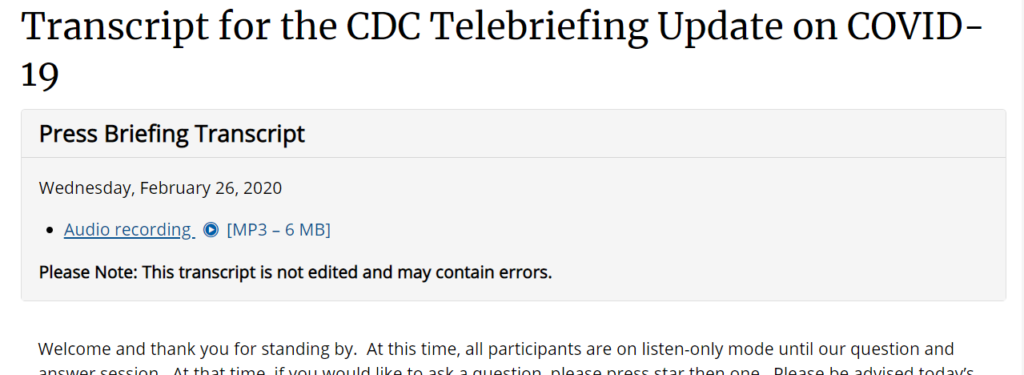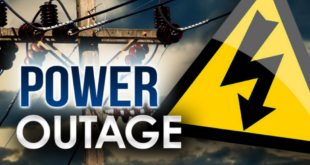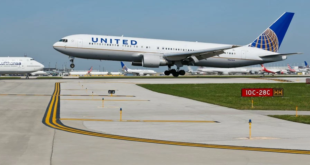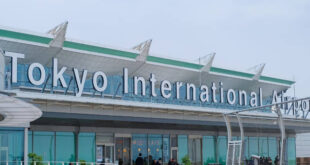The Novel Corona Virus (COVID-19) continues its spread from China to other nations. It has reached pandemic proportions at this time, with cases being confirmed across the northern hemisphere. The risk to travelers exists, and prudence dictates that keeping atop of available information on COVID-19 is an excellent first step.
As we are all aware, two cruise ships have been impacted, the Diamond Princess and Westerdam. It is widely reported that the Japanese mandated quarantine of the passengers on the Diamond Princess exacerbated the spread of COVID-19 among the passengers, when an on-shore quarantine under proper public health supervision would have been preferred. Similarly, individuals who were on the Westerdam and disembarked in Cambodia have been quarantined (though we learned today that some passengers are breaking the quarantine).
Multiple cruise lines have canceled their Asian itineraries, and have contacted affected guests directly and via numerous online advisories.
What’s the greatest risk to the traveler?
The greatest risk to a traveler at this time is being in the wrong spot at the wrong time, and being accidentally exposed to an infected traveler. This is evidencing itself in a variety of locales.
Italy has isolated whole towns and have about 50,000 persons isolated and then there is the most recent case of a traveler from Italy to Spain who caused a hotel in Tenerife to be locked down. The guest exhibited COVID-19 symptoms.
To help you, the traveler to travel securely and safely, we have provided links to credible sources of information on COVID-19 below and have also included our own checklists.
Travel Security Checklist - Medical and Health
Travel Security Checklist - Destination Information
Travel Security Checklist - Documents and Credentials
We have available a micro-site with the most up-to-date CDC generated information which you may access via our menus above or via this link: CDC COVID-19 INFO.
CDC advice for personal health safety
The CDC recommends these steps which you can take immediately while traveling to reduce the chances of your becoming infected with COVID-19 (or other infectious diseases, such as influenza)
- Avoid contact with sick people.
- Avoid touching your eyes, nose, or mouth with unwashed hands.
- Older adults and travelers with chronic medical conditions may be at risk for more severe disease.
- Cover your mouth and nose with tissue or your sleeve (not your hands) when coughing or sneezing.
- Clean your hands often by washing them with soap and water for at least 20 seconds or using an alcohol-based hand sanitizer that contains at least 60%-95% alcohol. Soap and water should be used if hands are visibly dirty. It is especially important to clean hands after going to the bathroom; before eating; and after coughing, sneezing or blowing your nose.
Updated 27 February: Click here for CDC FAQ on steps individuals may take to prevent becoming infected. We noted in our original post an ambiguity about the use of Face Masks. CDC’s recommendation re Face Masks is:
Q: Does CDC recommend the use of facemask in the community to prevent COVID-19?
A: CDC does not recommend that people who are well wear a facemask to protect themselves from respiratory illnesses, including COVID-19. You should only wear a mask if a healthcare professional recommends it. A facemask should be used by people who have COVID-19 and are showing symptoms. This is to protect others from the risk of getting infected. The use of facemasks also is crucial for health workers and other people who are taking care of someone infected with COVID-19 in close settings (at home or in a health care facility).
Excerpt from CDC Website
Travel Alerts from the CDC
Level 3 Alerts from CDC - China and South Korea. The CDC recommends that travelers avoid all nonessential travel to these two countries.
Level 2 Alerts from CDC - Iran, Italy and Japan. The CDC recommends that travelers be alert due to the fact that these countries are experiencing sustained community transmission of respiratory illness caused by the novel coronavirus (COVID-19). The virus can spread from person to person. Older adults and those with chronic medical conditions should consider postponing nonessential travel.
Level 1 Alerts from CDC - Hong Kong. CDC does not recommend canceling travel to Hong Kong at this time.
Community spread of COVID-19 - Singapore, Taiwan, Thailand and Vietnam [list of countries updated 27 February]. CDC defines community spread as ” people have been infected with the virus, including some who are not sure how or where they became infected. At this time, the extent of virus spread is not sustained or widespread enough to meet the criteria for a travel health notice.”
Tracking COVID-19
Interactive Map from Johns Hopkins University tracking COVID-19 is publicly available. To access the map, click on this link: Johns Hopkins Map or the image below.
Arriving in the United States
If you are arriving in the United States from China you will undergo health screening. The CDC, on the site which we referenced above, advises the following protocol may be expected.

COVID-19 and the United States
The CDC conducted a telebriefing on 25 February, which Securely Travel attended. Dr. Nancy Messonier provided a wealth of information and updates (most of which is readily available on the CDC microsite we created. That said, she also pragmatically noted that it isn’t a matter of if, but rather a matter of when the COVID-19 hits various communities. She shared her own conversation with her children.
“While I didn’t think they were at risk right now, we as a family ought to be preparing for significant disruption to our lives.”
Messonier continued how there are 14 confirmed cases in the United States, that number will increase. In addition, the CDC believes they have sufficient test kits available, and have established means of communication with state and local health departments.
CDC Briefing Transcript

 Travel Securely Securely Travel
Travel Securely Securely Travel




5 comments
Pingback: Diamond Princess - 4th death due to COVID-19 | Travel Securely
Pingback: COVID-19 and Italy (defer travel to Northern Italy) | Travel Securely
Pingback: BurgessCT OPINION: COVID-19 FUD the enemy of truth ~ BurgessCT
Pingback: COVID-19 and South Korea - Defer travel | Travel Securely
Pingback: Securely Travel Alert - 02 March 2020 | Travel Securely